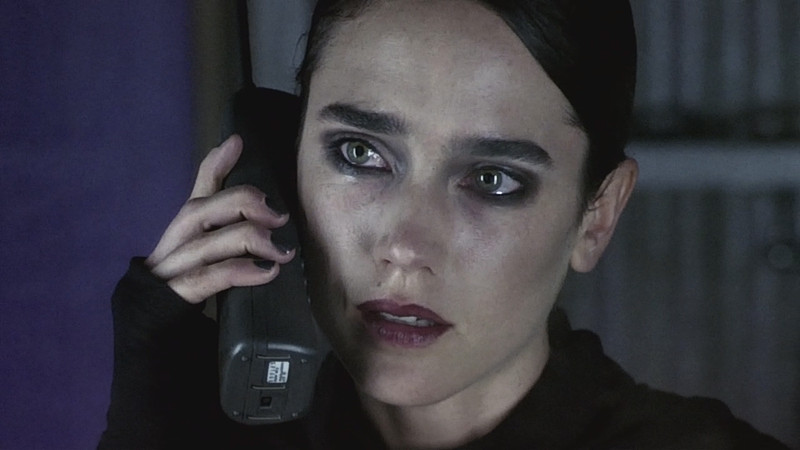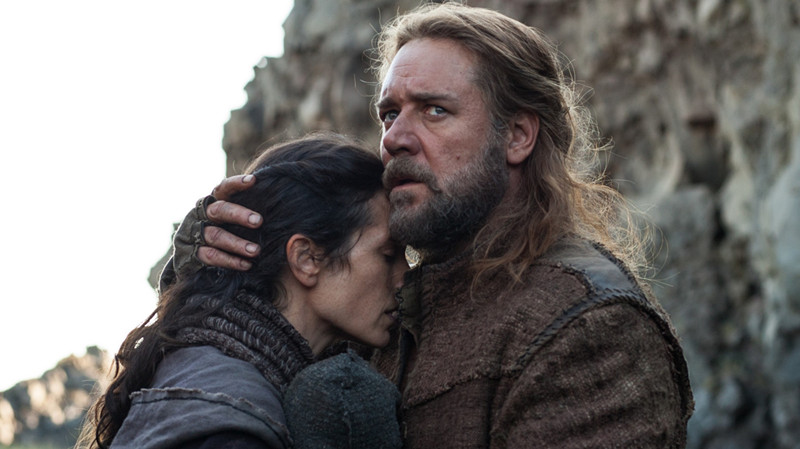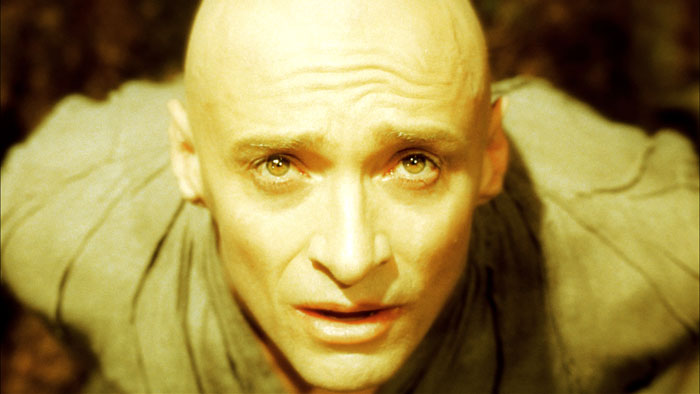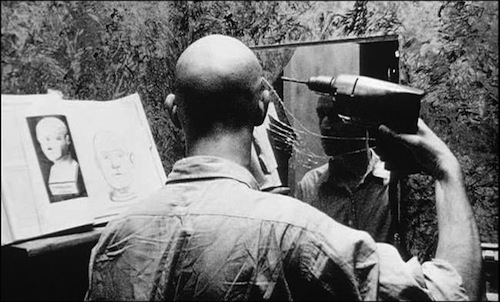
Darren Aronofsky’s filmography may be small, but it’s also consistently solid. Even at his worst, Aronofsky still manages to create films with profound messages. His ability to experiment with different genres and filmmaking techniques is admirable. More importantly, his knack for capturing the darker side of life is almost unprecedented. Whether he’s making a movie about ballet or mathematics, Aronofsky always finds a way to deliver a melancholy story filled to the brim with depth.
Before the release of his upcoming horror-drama film mother!, it’s worth looking back at his tremendous filmography to evaluate which of his six movies is the strongest. Let it be known that each movie is worth a watch. The goal is to figure out which one is most worthy of attention. Not everything is created equal. Not even Aronofsky movies.
7. Noah

The response to Aronofsky’s last film has been polarizing to say the least, and it’s easy to see why. His first crack at the blockbuster genre did reasonably well critically, but the general public didn’t treat it quite as kindly.
The movie was accused of whitewashing a multicultural story, and the creative choices made by Aronofsky were also somewhat controversial. Even with the positive critical reception, it still failed to earn the same type of acclaim as his previous two films. Financial success aside, it definitely felt like a step in the wrong direction after the release of two critical darlings.
The controversy isn’t the only thing bringing Noah down in terms of quality. The movie is ultimately too ambitious for its own good. The tone is uneven, the characters are bland, and the big budget fails to mask the fact that the movie lacks thought-provoking ideas. Russell Crowe is a force to be reckoned with, but not even he can save the movie from a flawed narrative. His latest movie isn’t an unmitigated disaster, but it’s certainly a disappointment.
Fans of Aronofsky should still give Noah a look as long as they keep their expectations in check. The beautiful visuals and top-notch cast help distract from some of the more frustrating moments. These frustrating moments remain difficult to ignore, but they’re slightly more forgivable as a result of the more positive aspects. It’s a shame that Noah had to follow two of Aronofsky’s most memorable films, but certain viewers should be able to find value despite the evident flaws.
6. The Fountain

Aronofsky’s worst reviewed film is, to some degree, an underrated gem. It’s definitely less intelligence than it probably thinks, but it’s a fascinating ride nonetheless. It’s probably Aronofsky’s most ambitious film to this very day, so the fact that it occasionally stumbles isn’t entirely mind-blowing.
From the multi-layered narrative to the visuals littered with symbolism, The Fountain has a tendency to bite off more than it can chew. The tonal shifts are distracting, the story is muddled, and editing is hit-or-miss. However, when the movie is at its best, it’s a dazzling tale about mortality and humanity.
The multi-layered narrative consists of three stories taking place in the past, present, and future. Each of these stories has to do with immortality and grief. The interwoven themes are what drive the narrative forward. It’s a novel idea, but it’s also a risky one. For the most part, the risk luckily pays off.
The stories are so different that the constant tonal shifts ultimately damper the quality of the film. Ignoring the inconsistent tone, The Fountain uses its three stories to convey intelligent ideas. Aronofsky has a lot on his mind, and he does his best to shove it all into this strange fantasy adventure.
Originally, Aronofsky envisioned a much bigger movie featuring Brad Pitt and Cate Blanchett. Instead, he had to settle for a smaller budget with a different cast. The good news is that Hugh Jackman and Rachel Weisz do a marvelous job in their roles. Hugh Jackman’s portrayal of the grieving husband is crushing, and Rachel Weisz never ceases to surprise the viewer.
In terms of the visuals, the smaller budget never seems to take away from the unique effects. The smaller scale is only noticeable when you look at the length of the film. Though Aronofsky intended for the film to be something of an epic, the 96 minute runtime hardly feels epic. Instead, it often feels rushed. It seems as if everybody is trying to jam in as much content as possible. It’s a shame that Aronofsky never got to release a proper director’s cut.
If anything, The Fountain is an inconsistent work of art. It represents what people have come to expect for Aronofsky. It’s a little messy, but it has big ideas that are presented to viewers in unique ways. If Aronofsky were given the creative freedom he sought, would this be his greatest achievement? It’s hard to tell. Regardless, it’s still an interesting experiment.
5. Pi

Aronofsky hasn’t always been able to make his surreal movies approachable for mainstream audiences. His directorial debut is as strange as it is thought provoking, but its appeal is limited. If the grainy black and white cinematography doesn’t drive casual moviegoers away, then the chaotic math centered story can easily get the job done. Unlike Black Swan, Pi is unable to present complex ideas while simultaneously telling an accessible story. Basically, the movie is too damn weird.
Luckily, a movie’s quality is not determined by whether or not it can reach a wide audience. If that were the case, then The Tree of Life wouldn’t have been able to earn a Best Picture nomination. Pi may not be the best movie for a first date, but it’s more than capable of appealing to its target audience. People looking for an unconventional surrealist thriller will find a lot to love in this tiny package.
Aronofsky uses his bizarre story to make statements about religion, obsession, and the quest for perfection. Each subsequent viewing reveals a little more about what the film is attempting to tell the audience. The movie is undoubtedly tied to the subject of mathematics, but that particular subject exists only to further strengthen the underlying themes. This kind of philosophical depth is precisely what makes the movie such an artistic achievement.
Pi fails to reach the upper-half of the list if only because it has a tendency to feel slightly amateurish. Given the fact that it’s Aronofsky’s first movie, that shouldn’t be too surprising. The forgettable performances and clumsy editing can definitely bring down the overall experience, especially when you compare the movie to something like Black Swan. When viewed as a directorial debut, it’s unfair to put too much emphasis on the more technical aspects. The movie may lack polish, but it’s never short on interesting ideas.
4. mother!

mother! is, without a doubt, Aronofsky’s most polarizing movie to date. Considering just how surreal his filmography is, that’s quite an achievement. The main issue with the film is that it was advertised as a horror movie when in reality it’s a far more psychological affair. Fans of Aronofsky should have known he wouldn’t release a straightforward horror movie, but the symbolism is pretty heavy-handed even for him. Basically, the studio decided to give an arthouse movie a wide release and people looking for an edge-of-your-seat thrill ride were disappointed. This is likely why the film earned an F Cinemascore while critical reviews were far more favorable.
Those willing to come in with an open mind, and those willing to ignore basically every trailer and plot synopsis, will have a much better time than viewers who come in expecting what was shown in the trailers. The marketing for mother! was disastrous, but it’s actually a thought-provoking thriller that’s both introspective and totally bonkers. It’s not scary by any means, but that’s because it’s not supposed to be. It’s a long, gleefully entertaining extended metaphor that’s a treat for people willing to put up with Aronofsky’s lunacy.
This isn’t to say that people who don’t end up enjoying the movie don’t understand the underlying themes. Actually, those who felt misled by the promotional material are more likely to be disappointed than those who just don’t get it. To be fair, the viewers who didn’t get the movie they expected have every right to be disappointed. mother! only vaguely resembles the movie it seemed to be, but it has certain aspects that can be appreciated regardless of one’s thoughts on the plot and genre. The cast is phenomenal, the production design is beautiful, and some of the more intense scenes are jaw dropping. In other words, it’s hardly the failure it appears to be regardless of the questionable marketing.
There are plenty of people who hate mother!, and that’s perfectly fine, but there are just as many people who find it to be a borderline masterpiece. This particular author falls within the latter category. The symbolism may be in-your-face and the lack of actual thrills may be disappointing, but the film remains a memorable experience. Only Aronofsky’s twisted mind could come up with something so strange and enjoyable.